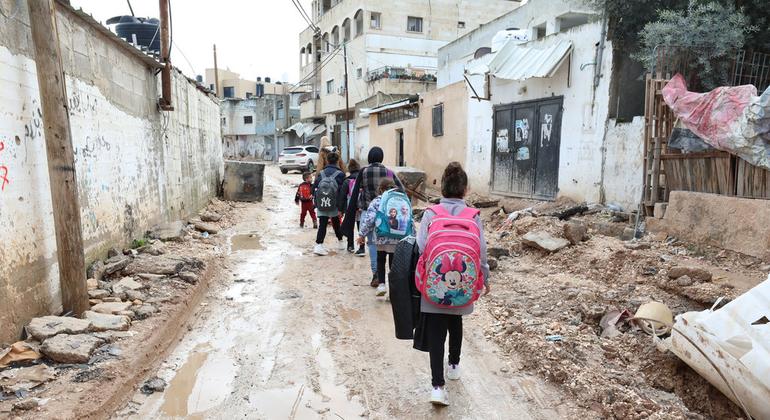Here’s the translation to American English:
This morning, armed Israeli forces conducted an operation at three schools of the United Nations Relief and Works Agency for Palestine Refugees in the Near East (UNRWA) located in Shufat, East Jerusalem. This action forced the evacuation of more than 550 students amidst a climate of rising tension. The intervention followed an order from the Israeli Ministry of Education, which urged the closure of these institutions that operate under a mandate supported by the United Nations General Assembly.
As a result of this assault, UNRWA was compelled to close a total of six schools in the region. An agency official was detained, deeply impacting the school community and leaving approximately 800 children in shock. The UNRWA representative in the West Bank emphasized that Israeli legislation prohibiting the agency’s activities in East Jerusalem is illegal and constitutes a serious violation of Israel’s commitments as a UN member state under international law. The organization condemned this attack, urgently calling on the international community to uphold UNRWA’s mandate and ensure a humanitarian space in the region.
Meanwhile, the food crisis in Gaza continues to worsen after more than nine weeks of strict Israeli blockade. From April 27 to May 6, one in three community kitchens was observed to be closed, decreasing the daily meal production by 25%. This reduction has led to a drop from 1.08 million meals to just 823,000, with projections warning of a future decline to 440,000. More than 100 kitchens have closed due to supply shortages, threatening the food security of the population, while the price of flour has increased 30 times, exacerbating social tensions and risks in the still-operational facilities.
In another matter, the UN Human Rights Committee has held Guatemala accountable for the forced displacement of indigenous peoples, stating that the state is internationally guilty for failing to implement reparation agreements for 269 members of the Maya K’iche’, Maya Ixil, and Maya Kaqchikel communities. Victims continue to face uprooting and loss of cultural identity as a consequence of the “scorched earth” operations carried out in the 1980s. The Committee has urged the Guatemalan government to fulfill reparations and ensure the dignity of those affected.
Finally, the situation in Sudan is also critical. Recent airstrikes on the country’s main port have jeopardized humanitarian response efforts. The UN Secretary-General has expressed concern over these bombings, which have displaced thousands and left millions without access to essential services. He has demanded an immediate cessation of hostilities and a return to dialogue as the only path toward lasting peace.
Source: MiMub in Spanish
